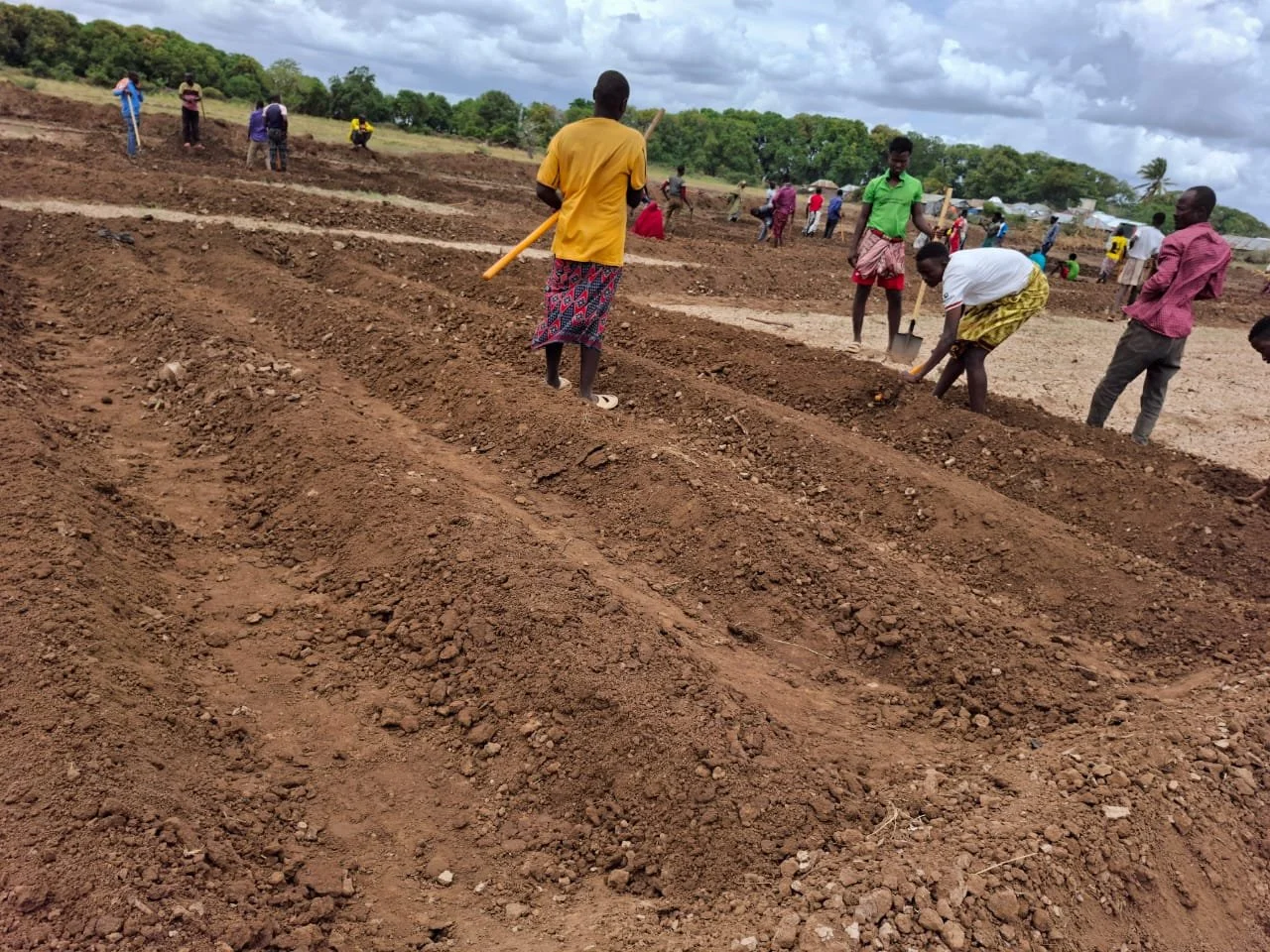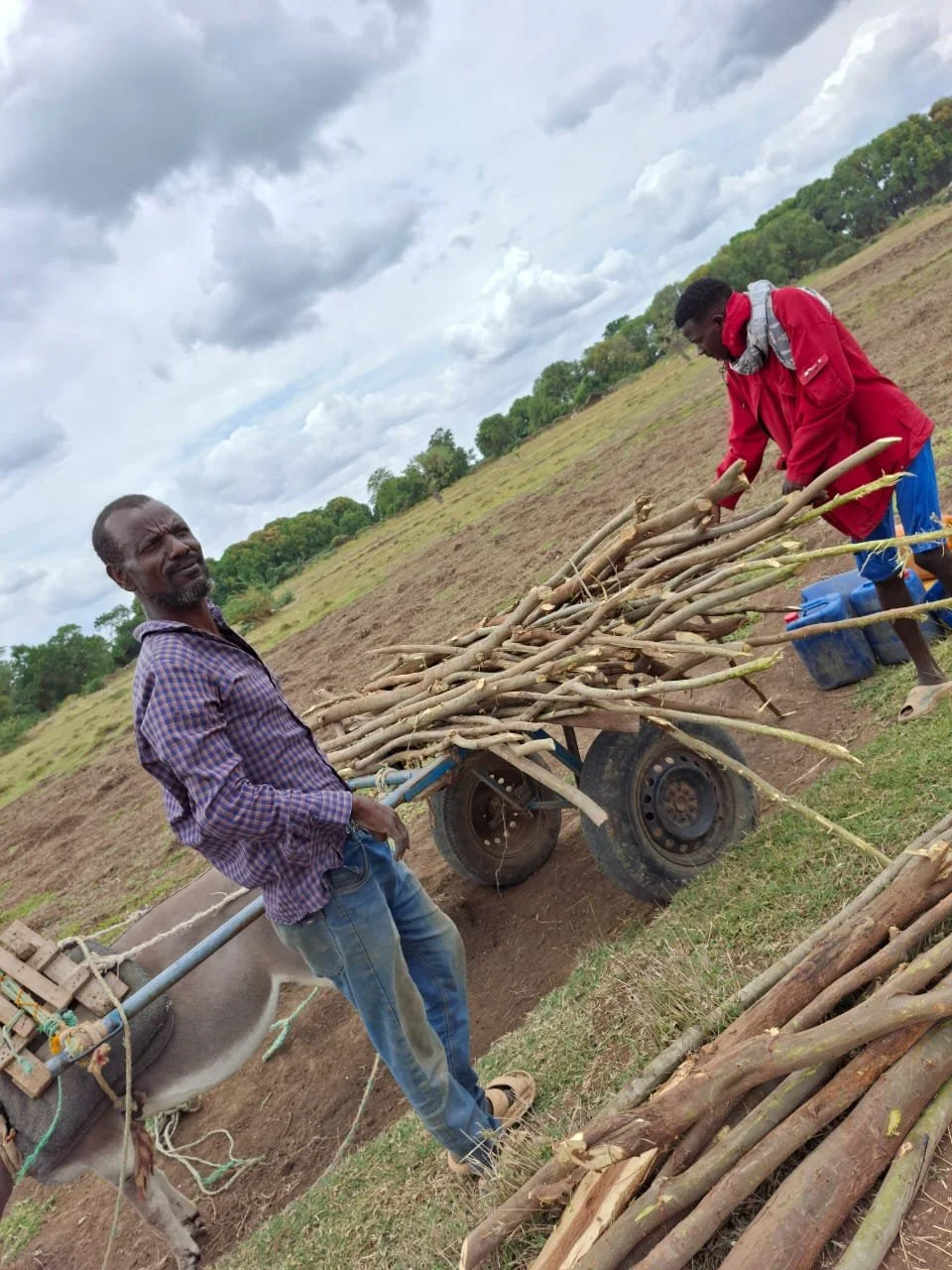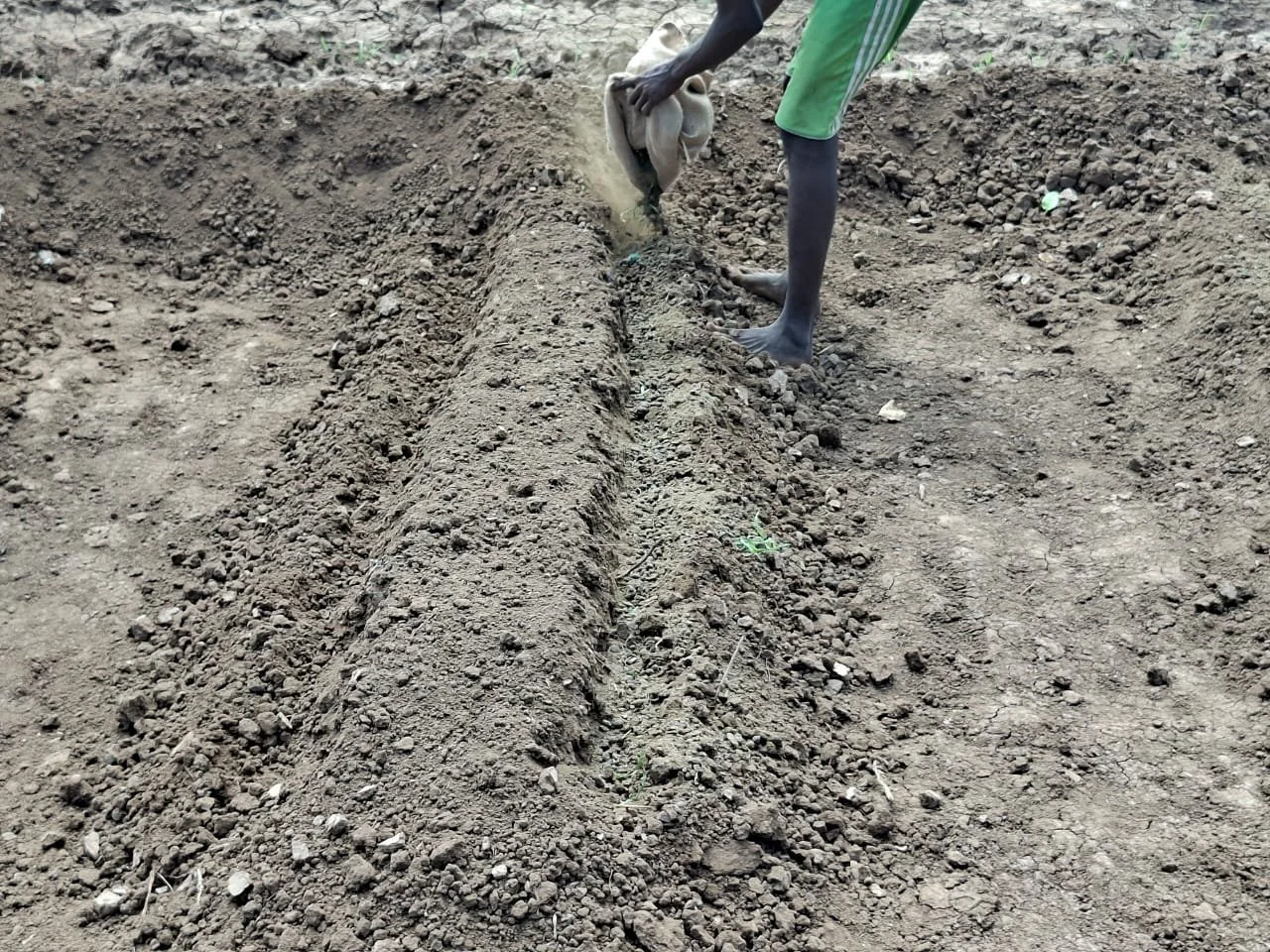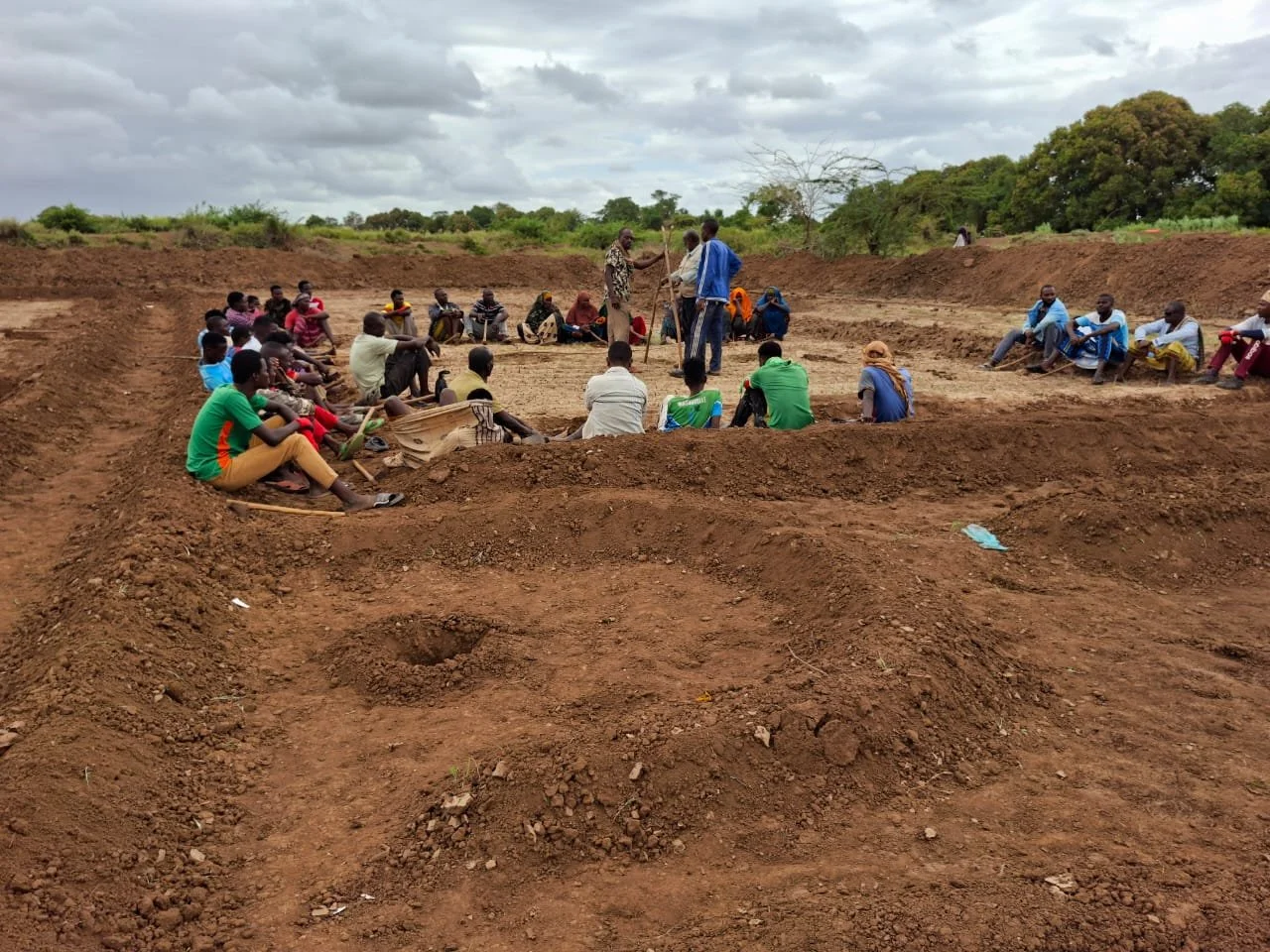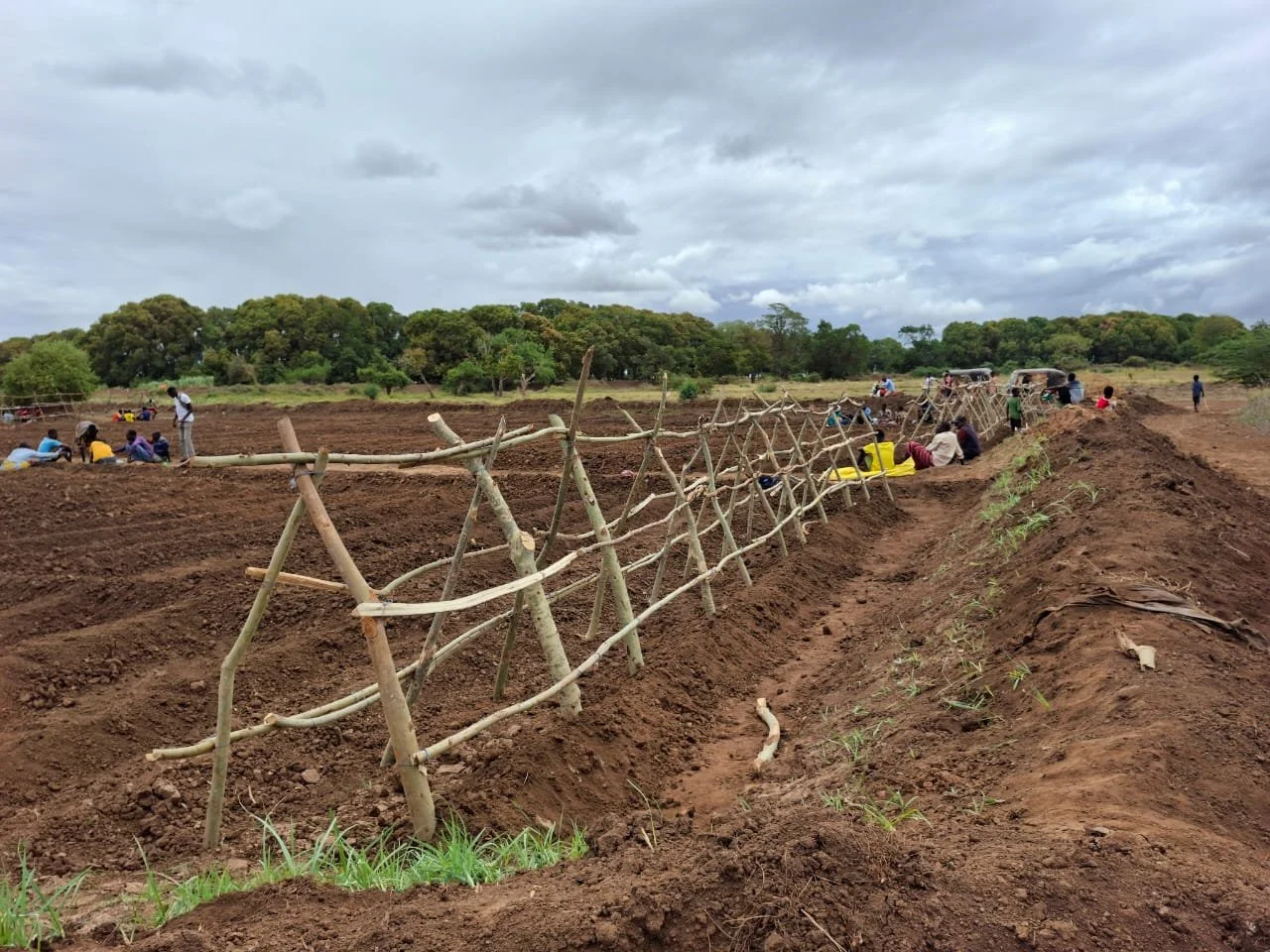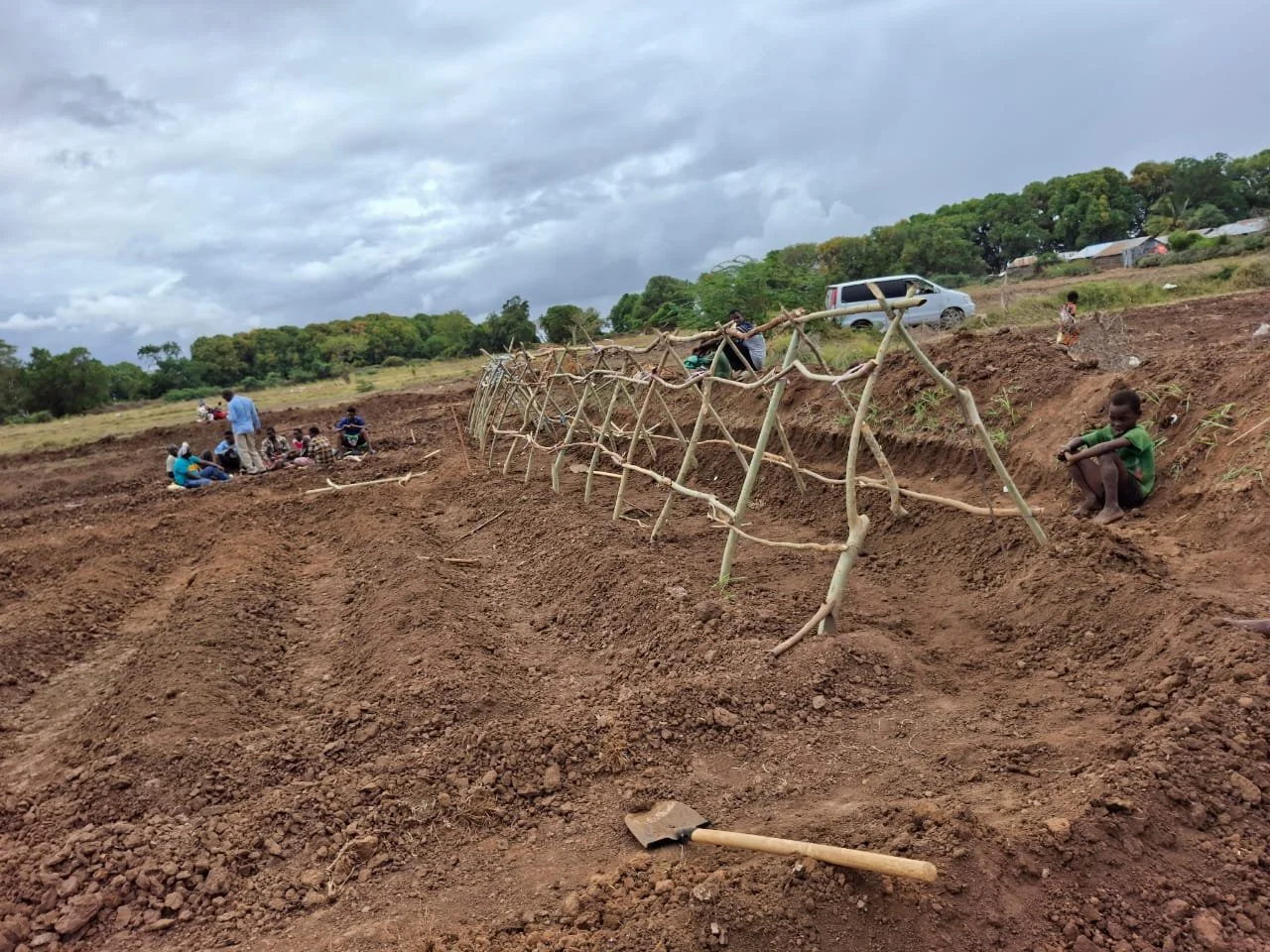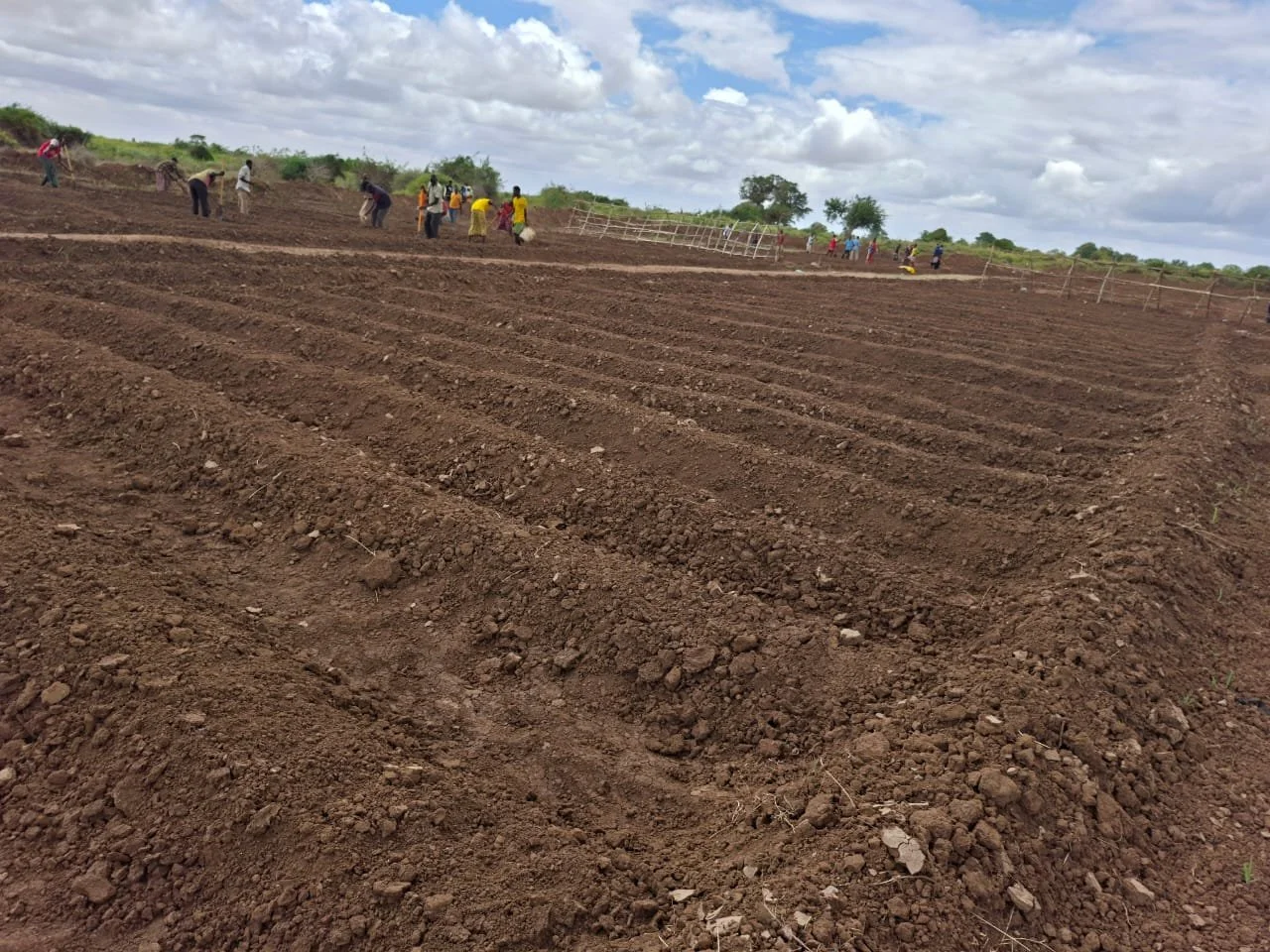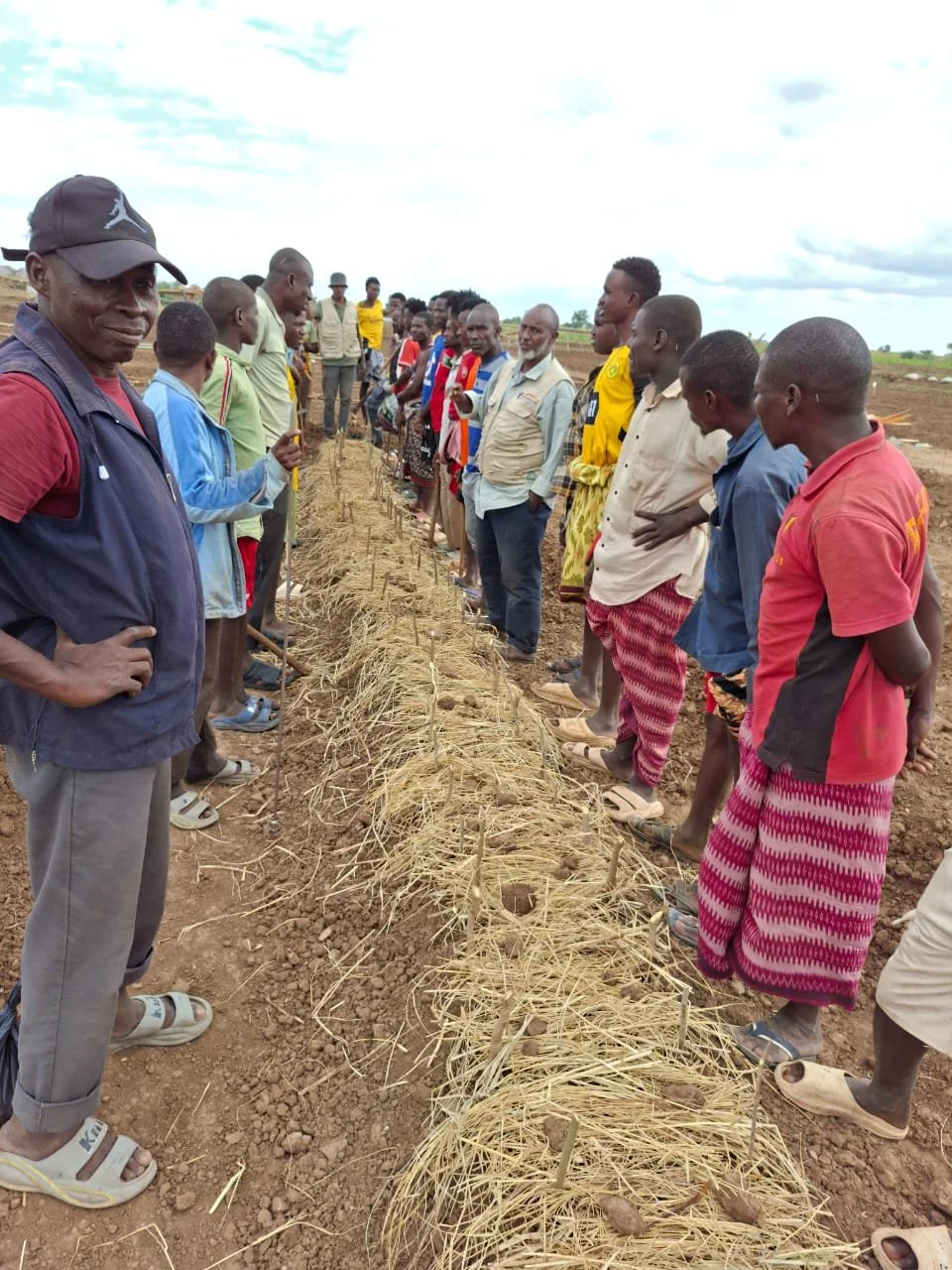Forging a Greener Peace in Hirshabele: Restoring Lands and Livelihoods
In the Jowhar district of Somalia's Hirshabele state, riverine communities face an increasingly urgent crisis. Land degradation, soil salinity, pests, and low agricultural productivity are threatening the very foundation of their livelihoods. In response, Shaqodoon is spearheading a unique and community-led initiative: a Resilience Design Training. This program is helping local farmers reclaim their land and build a more sustainable future.
The core of this training is a hands-on approach to sustainable farming, with a focus on low-soil-disturbance techniques. Rather than relying on methods that deplete the land, farmers are learning to work with nature to restore its health.
Key Approaches to Regeneration
1. Water Management: To combat the harsh climate, farmers are learning to stabilize local hydrology. Using simple, handmade tools like A-frames, they are building water-harvesting structures such as halmoons, bioswales, and dug beds that follow the natural contours of the land. These structures are crucial for capturing and retaining rainwater, while practices like mulching are emphasized to help the soil hold onto this precious moisture.
2. Soil Regeneration: A major focus is transitioning away from chemical fertilizers like DAP and TSP, which can harm long-term soil health and contribute to salinity. Instead, the training promotes the use of organic amendments readily available in the community, such as animal manure, charcoal, wood ash, and dry leaves. This not only improves the soil's biology but also empowers farmers to be self-sufficient by using local resources and reducing their dependency on expensive, external chemicals.
3. Biodiversity Planting: To build stronger, more resilient ecosystems, farmers are being introduced to a diverse range of native plant species. This approach helps the land resist pests and adapt to climate stresses, creating a more robust and productive farming system.
An Innovative Pilot: Tackling Salinity Head-On
A particularly innovative aspect of the training is a pilot program for saline soil leaching. In this process, farmers are flushing abandoned fields with river water to remove the excess salts that have rendered the land unusable. The runoff is then carefully pumped back to the river, preventing it from contaminating other areas. This technique offers a practical way to rehabilitate degraded land, reduce the need for chemicals, and restore the soil's natural biology.
This training brings together communities from the Baarey and Gumbe villages, creating a platform for mutual learning and shared progress. By translating resilience design principles into practical skills, Shaqodoon is empowering farmers to not only address their current challenges but also build a greener, more peaceful, and prosperous future for their state.

